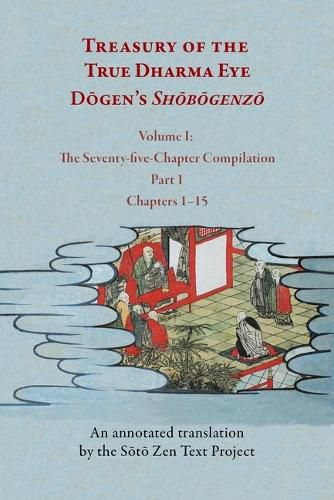Readings Newsletter
Become a Readings Member to make your shopping experience even easier.
Sign in or sign up for free!
You’re not far away from qualifying for FREE standard shipping within Australia
You’ve qualified for FREE standard shipping within Australia
The cart is loading…






This publication represents an English rendering of one of the great classics of Japanese Buddhism, the Shobogenzo, by Dogen (1200-1253), founder of the Soto Zen school. The translation was produced by the Soto Zen Text Project, a team of scholars working under the auspices of the Administrative Headquarters of Soto Zen Buddhism. It is based on the Japanese edition of the Shobogenzo in Kawamura Kodo ed., Dogen zenji zenshu, volumes 1-2, which provides what are thought to be the most authoritative compilations of Dogen's Shobogenzo essays, in seventy-five and twelve chapters, supplemented by sixteen additional texts.
The translations, in seven volumes, are aimed at both professional and lay audiences. They are accompanied by the Japanese texts and by extensive annotation on the language, literary sources, and interpretations of those texts. An eighth volume provides a lengthy study of the history and contents of the Shobogenzo, supplementary notes to the translation, and an extensive bibliography of primary and secondary works.
$9.00 standard shipping within Australia
FREE standard shipping within Australia for orders over $100.00
Express & International shipping calculated at checkout
This publication represents an English rendering of one of the great classics of Japanese Buddhism, the Shobogenzo, by Dogen (1200-1253), founder of the Soto Zen school. The translation was produced by the Soto Zen Text Project, a team of scholars working under the auspices of the Administrative Headquarters of Soto Zen Buddhism. It is based on the Japanese edition of the Shobogenzo in Kawamura Kodo ed., Dogen zenji zenshu, volumes 1-2, which provides what are thought to be the most authoritative compilations of Dogen's Shobogenzo essays, in seventy-five and twelve chapters, supplemented by sixteen additional texts.
The translations, in seven volumes, are aimed at both professional and lay audiences. They are accompanied by the Japanese texts and by extensive annotation on the language, literary sources, and interpretations of those texts. An eighth volume provides a lengthy study of the history and contents of the Shobogenzo, supplementary notes to the translation, and an extensive bibliography of primary and secondary works.